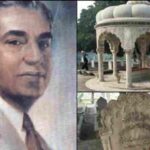Zohran Mamdani, a 34-year-old democratic socialist, stands on the cusp of becoming New York City’s youngest mayor in over a century. With a comfortable lead in Tuesday’s polls, the state assemblyman would also be the city’s first Muslim and South Asian leader, marking a dramatic rise from relative obscurity just months ago.
The millennial candidate has energized disaffected voters through viral videos and social media outreach, tapping into widespread frustration with traditional Democratic politics. His campaign has focused laser-sharp on affordability—New York’s most pressing concern—promising universal childcare, rent freezes in subsidized housing, free public buses, and city-run grocery stores.

Mamdani faces former Democratic Governor Andrew Cuomo, now running as an independent after losing the primary, and Republican Curtis Sliwa in a contentious three-way race. Cuomo warns that Mamdani’s agenda would devastate business, while claiming he alone can stand up to Trump. Sliwa dismisses both rivals, mocking Mamdani’s thin resume and Cuomo’s failures.
The ambitious social programs would cost roughly $9 billion, funded through new taxes on corporations and millionaires—though critics question whether his numbers add up. Implementation would require approval from the state legislature and Governor Kathy Hochul, who has endorsed Mamdani but opposes income tax increases.
President Trump has threatened to withdraw federal funds if New Yorkers elect what he calls a “communist”—a charge Mamdani rejects, comparing himself instead to a Scandinavian politician. His politics echo Bernie Sanders and Alexandria Ocasio-Cortez, emphasizing workers’ voices over corporate interests.
Wall Street initially panicked after Mamdani’s primary victory, but the mood has shifted toward cautious collaboration. JPMorgan Chase CEO Jamie Dimon has even offered to help if Mamdani wins. This change reflects Mamdani’s concerted outreach to business leaders and willingness to moderate some positions.

Notably, he has reversed his 2020 calls to defund police, apologizing for labeling the NYPD “racist” following George Floyd’s murder. He now pledges to maintain current staffing levels and retain Police Commissioner Jessica Tisch—moves aimed at reassuring voters concerned about crime.
Mamdani’s unwavering support for Palestinian rights has proven divisive in a city with the largest Jewish population outside Israel. Over 1,100 rabbis condemned the “political normalization” of anti-Zionism in a letter citing him, and Jewish voters are split between Mamdani and Cuomo. The candidate has faced increased Islamophobia since his primary win, including terrorist threats that prompted police protection.
National Democrats appear uneasy about Mamdani’s rise. Senate Minority Leader Chuck Schumer hasn’t endorsed him, while House Minority Leader Hakeem Jeffries waited until hours before early voting to do so. Moderate Democrats worry Republicans will use Mamdani as a “bogeyman” to paint the entire party as socialist.
Yet supporters see his potential victory as sending a powerful message about the Democratic Party’s future direction. For volunteers like Paloma Nadera, Mamdani represents the bravery she’s found lacking in Democrats since Obama’s 2008 campaign.
Whether this political newcomer with no executive experience can deliver on his promises while facing a hostile Trump administration remains uncertain. But Mamdani argues that defending democracy requires more than resisting authoritarianism—it demands delivering material benefits to working-class people, something he believes New York has failed to do.






